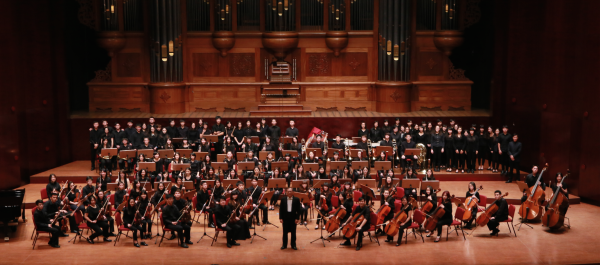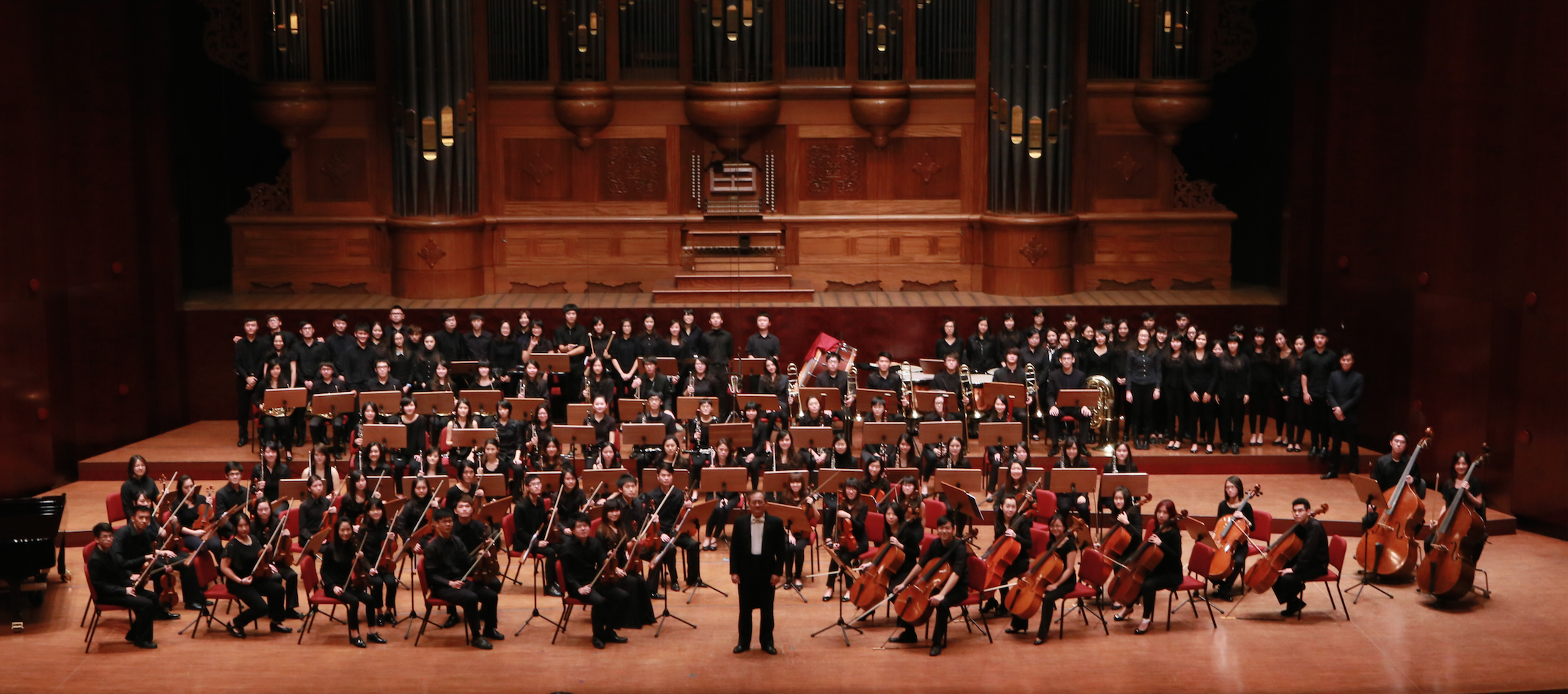
If you’re ever wandering around Stanford, keeps your ears open, especially if you find yourself near Dink — you never know who might be performing. This past Wednesday night, the Department of Music from the National Taipei University of Education (NTUE) brought a fusion of East and West to Dinkelspiel Auditorium as part of their 120th anniversary celebration. The director and her group of roughly 25 student musicians showcased classic chamber music as well as more traditional Taiwanese songs.
In what must’ve been an effort to illustrate NTUE’s breadth of different groups, the program consisted of 15 different pieces, almost all under ten minutes, and most closer to five. The overall effect was a somewhat disruptive program; just as the audience settled into an ensemble’s piece, the members were bowing and walking offstage.
Still, the diversity of groups ensured everyone found at least one short performance that spoke to them, whether it was the opening string quintet, the flute quartet or numerous voice duets. NTUE even prepared French composer Albert Lavignac’s “Galop Marche,” a work for one piano and eight hands. The audience chuckled as the four pianists got cozy on stage before diving right into the high-energy piece with four unison ascending runs. Certainly, this quartet captured the carnival-esque mood of the work with their flair in hand gestures and body movement; one pianist finished a chord leaning back, with his feet off the floor and hands high in the air. This flamboyance perhaps compensated for the at-times sloppy synchronization of the group. While the four pianists nailed unison parts as one, they often lost the beat in other places.
Other musicians really shone, especially soprano Chien Hsuan-Jung in her two duet appearances. Her voice sounded pure and clear, providing the perfect contrast the romantic and pedal-heavy piano accompaniment in Robert Schumann’s “Er und sie.” Hsuan-Jung, like many other performers, also possessed an excellent stage presence as well as a great deal of poise. I was especially impressed with the ladies as they traipsed on and off in heels and floor-length dresses, never faltering.
To conclude the night, NTUE brought the entire group out in a series of five Taiwanese choral pieces. The choir produced an incredibly rich and full sound, evoking the imagery in Liu Chin-Hsuan’s “Dream of Sea” with dramatic swells in dynamics and harmonies, creating the richness of a cinematic soundtrack.
All in all, seeing NTUE perform made for a welcome surprise, given the variety of music showcased as well as the artistic depth from many of the performers. While some musicians could have polished their performances more technically, the overall concert went over extremely well with the audience. Come again soon, NTUE!
Contact Serena Wong at serenaw ‘at’ stanford.edu.
